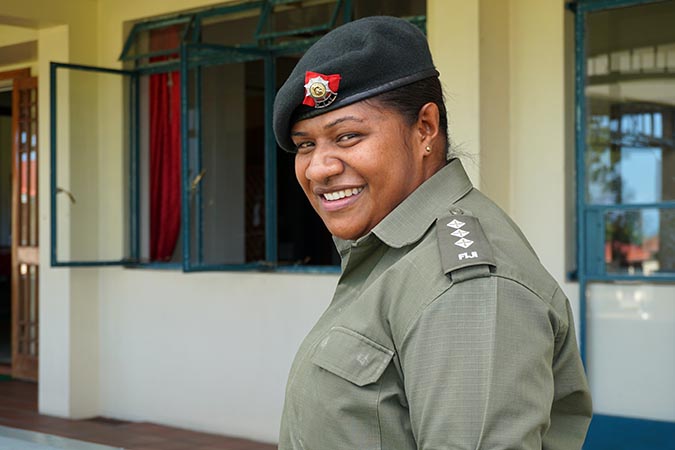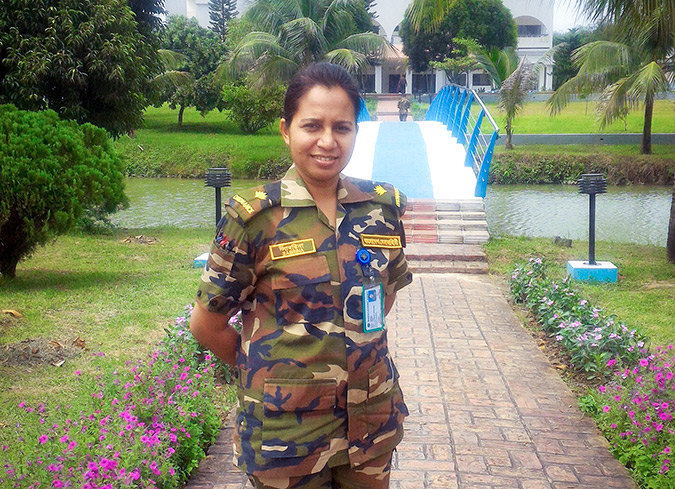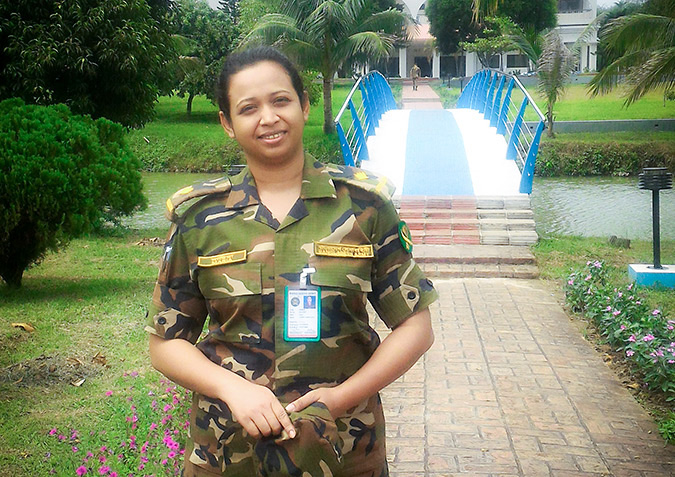Protection and Peacekeeping
“
The presence of female peacekeepers … positively impacts the confidence of the local population; the reporting of gender-based violence increases; and in fact, my troops become role models for the local girls.”
In places experiencing or at risk of conflict, women, men, boys and girls face different security threats that require tailored responses. But these have received little attention in security reform, resulting, for example, in lost opportunities to recruit more women to security forces to broaden trust and act on gender-specific concerns such as sexual violence. The valuable knowledge and strategies that women and girls may have to shape safer communities are often overlooked. It is crucial for women to participate in the security and peacekeeping sector and this need has been recognized as a critical component for the success of UN peacekeeping missions. Both the UN normative frameworks on peacekeeping and women, peace and security, as well as commanders on the ground emphasize the importance of having women participating in peacekeeping.[2]
However, women continue to be significantly underrepresented in security sector across the Asia Pacific region. The Global Study indicates that on average women comprise only three percent of the military in the UN missions. This underrepresentation persists despite the Global Study on the Implementation of United Nations Security Council Resolution 1325 (Global Study) finding women’s participation in the security sector has significantly reduced complaints of misconduct, lowered rates of improper use of force, or inappropriate use of weapons. Further, women who led peacekeeping operations, or operations with women officers, have increased the credibility of forces, managed to gain access to communities and vital information, and has resulted in an increase in the reporting of sexual and gender based crimes.
UN Women’s Role
UN Women, through collaborations with the Department of Peacekeeping Operations and the Centre for United Nations Peacekeeping (CUNPK), provide support to capacity building efforts of nations across the region to facilitate women’s access to peace and security operations. UN Women supports various nationally-led peacekeeping initiatives, such as the training of 1216 prospective peacekeepers—to date—on sexual violence in collaboration with the CUNPK in India, and scenario-based training modules[3]. Over the last five years, UN Women in India, in collaboration with CUNPK, conducted more than 26 courses for UN peacekeepers — both men and women — on gender and sexual or gender-based violence prevention, as part of pre-deployment trainings. In a first of its kind initiative, UN Women in India in partnership with CUNPK has developed a special technical course for female military officers which is being piloted in New Delhi, India. The UN Women Regional Office for Asia-Pacific provided technical input to Timor-Leste towards the implementation of the women, peace and security (WPS) agenda, notably UN Security Council resolution 1820 and 1325 to strengthen the mandate of peacekeeping forces to prevent systematic sexual violence, and in the development of their National action plan on WPS. UN peacekeeping missions are one of our most visible and expensive forces at the ground level and can profoundly impact women’s lives.
Latest news
From where I stand:
“I have a strong role to play as a UN Peacekeeper from Bangladesh, I need to make my nation proud.”
Sabrina Asad Hima was amongst the first batch of women who were sent from Bangladesh as UN Peacekeepers. Sabrina was commissioned to Côte d’Ivoire in 2012... Read more
From where I stand:
“You are a woman, how are you going to handle such a difficult situation by yourself?”
Maj. Ishrat Maria Mitu was one of the first women from Bangladesh commissioned as a UN Peacekeeper. She served in the United Nations Mission in Sudan (UNMIS) for a year in 2009... Read more


